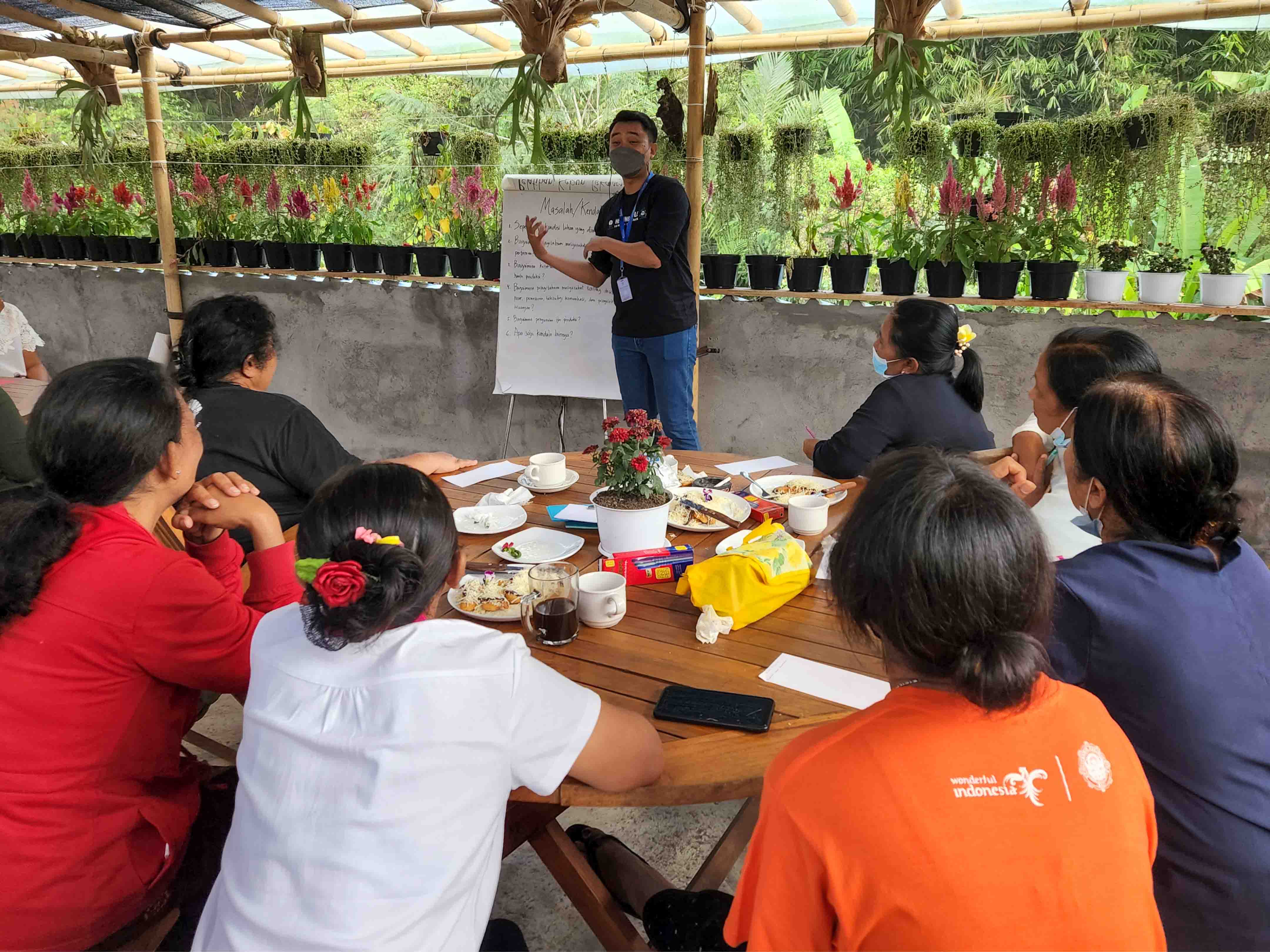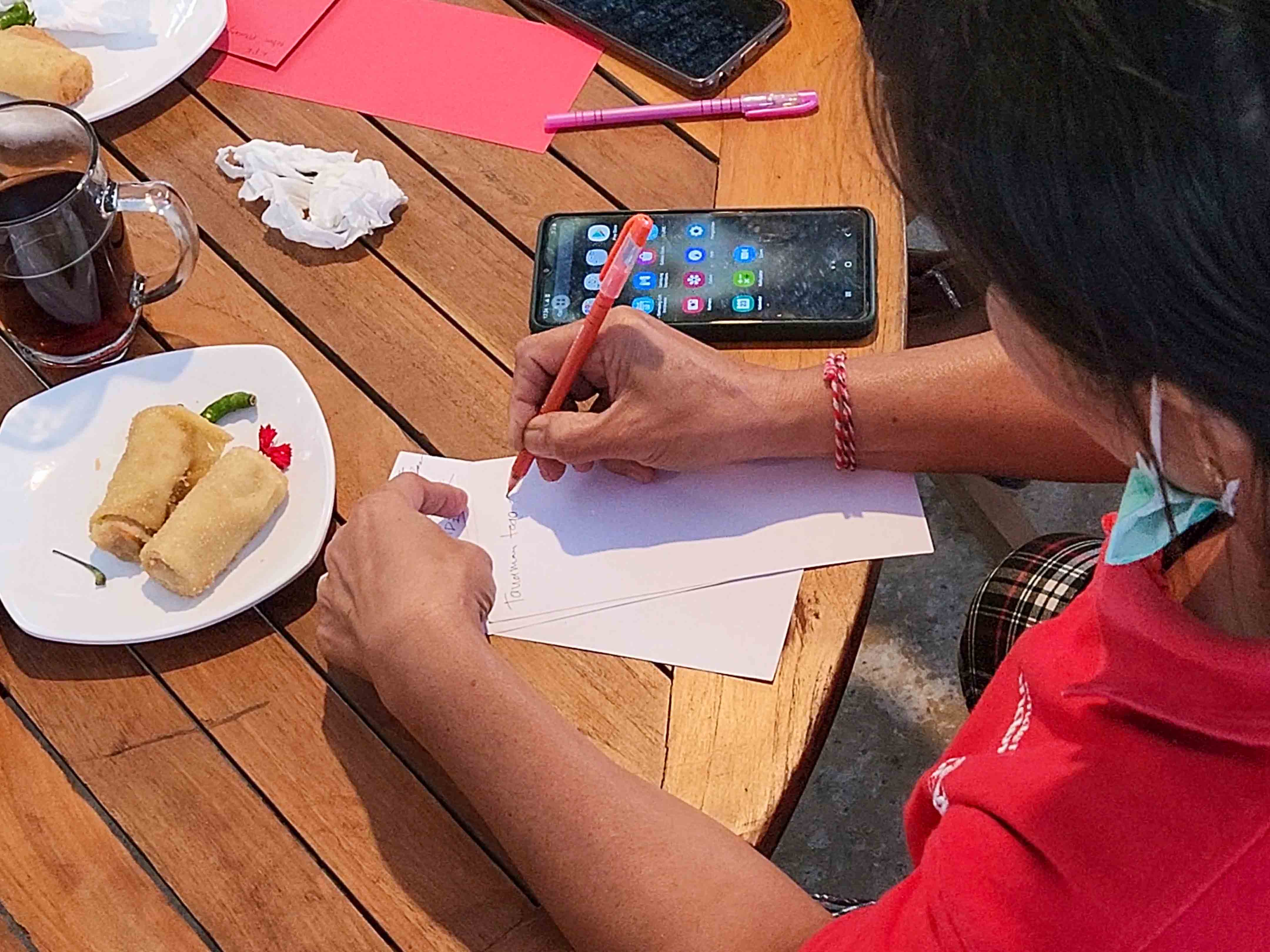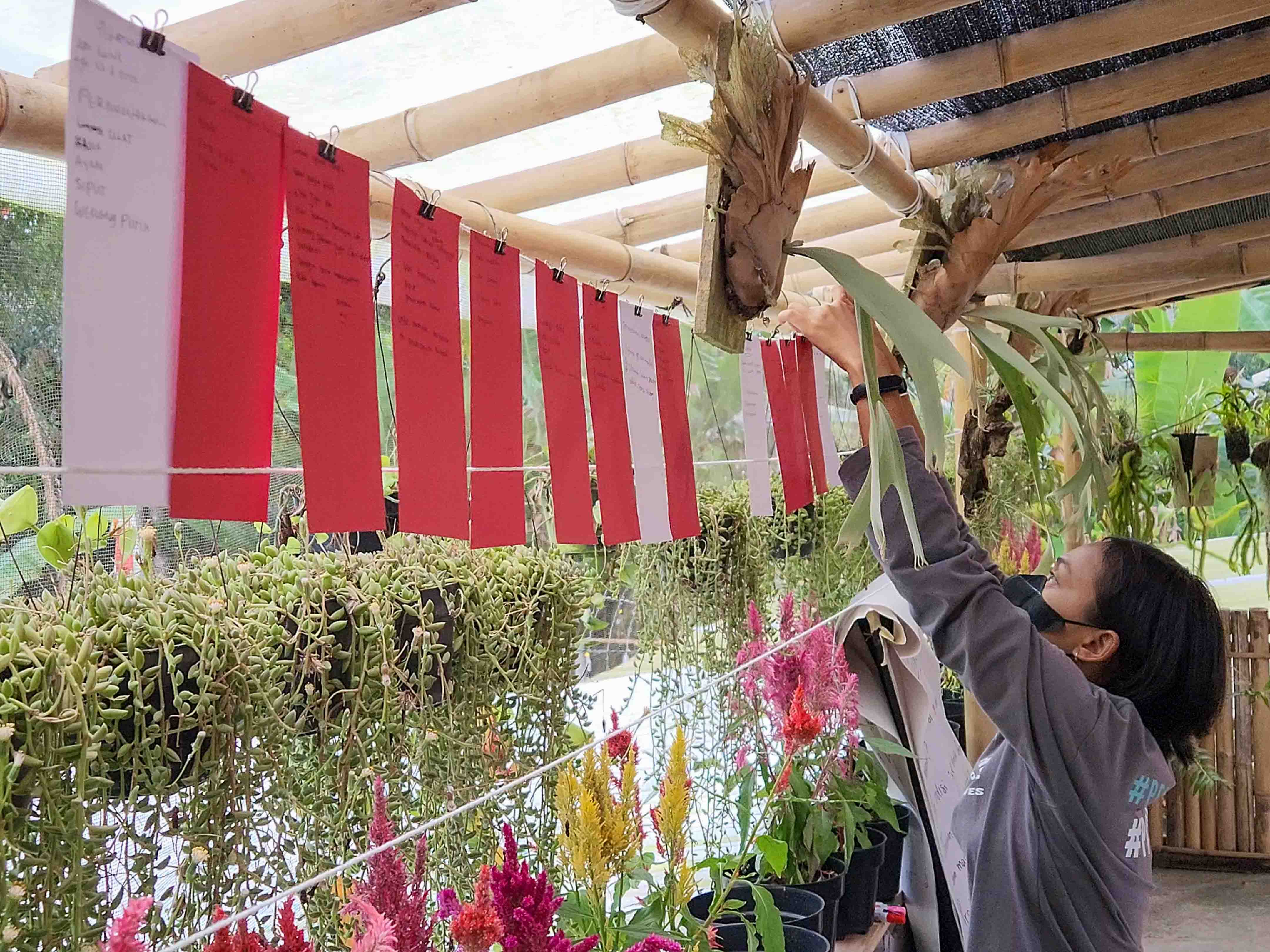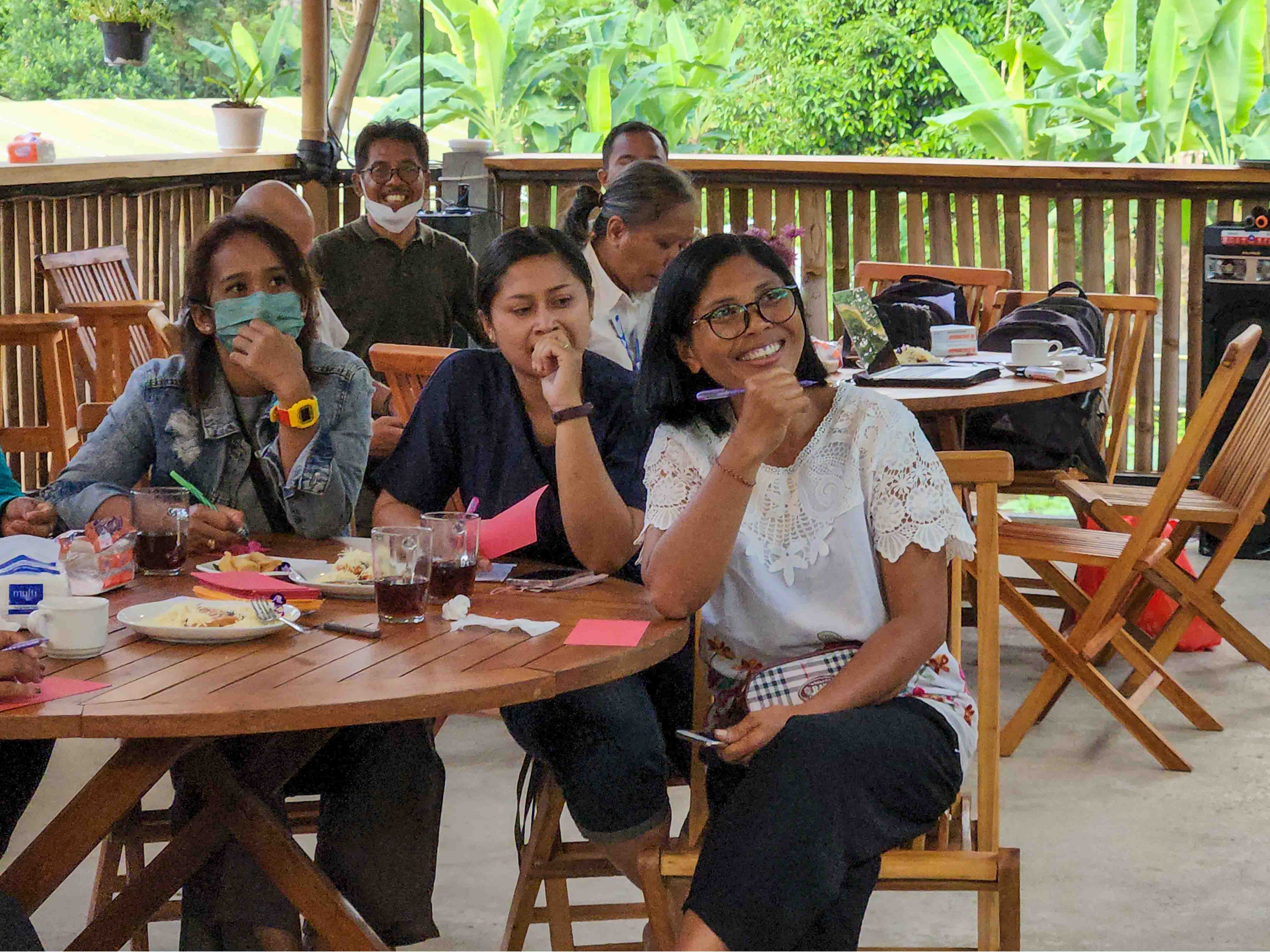Women Farmer Group Designing Economy Sustainability for Penglipuran Village
For more than 20 years, the Government appointed Penglipuran Village as a tourism village. Annually, this village in Bangli District offers innovations that increase tourists' interest. One of them is loloh cemcem, which is already known as the local product of Penglipuran. Marketing efforts made by the community make this product famous in the world of the efficacy and taste of loloh cemcem. They pack and label it. Demand from tourists and other communities is also increasing.

Wahyu Permana invite Women Farmer Groups in Penglipuran to discuss the effort to develop their village on Thursday, June 23, 2022 (Photo: Eka Dharma)
However, when the COVID-19 pandemic hit the world in early 2020, the situation began to become uncertain, including in Penglipuran Village. A decreased number of tourists accompanied the closure of this Tourism Village, so the economy of Penglipuran Village, which depended on tourism, declined. Including the sale of processed products, especially loloh cemcem. This traditional village has also begun to tighten the entry and exit routes to the village and open the entrance for tourists in a reasonably short time a day.
Although production continues and orders are still there, income is not what it was before the pandemic hit. The community still relies on direct sales. When their "market" is closed, people start thinking about alternative marketing efforts – such as online platforms. They also realized that dependence on tools and materials impacted production costs.

Participants write challenges that they experienced and their next plan to improve the village’s income (Photo: Eka Dharma)
Although many processed products are produced, residents still lack raw materials and have to buy them from neighboring villages. Departing from this challenge, IDEP, together with the Mawar Langgeng Sari and Sekar Jepun Women Farmers Group (KWT), discussed on Thursday, 23 June 2022.
The discussion was held at Kebun Penglipuran Cafe, owned by one of the KWT members. It went on for a long time, full of laughter, but gave birth to points for a follow-up plan. This group of empowered women knows that the products they process are still dependent on foreigners, so IDEP and KWT also plan to build gardens in their yards. Although some members feel they do not have the capacity to cultivate the garden. Most of those familiar with gardens are still limited to maintaining ornamental plants. However, some still have a field–garden yard–outside their house, usually planted with chili, cassava, banana, curcuma, turmeric, ginger, and lemongrass.

Challenges and ideas written by participants are hung so everyone can see and discuss it in the discussion (Photo: Eka Dharma)
In addition to lack of land and experience, some fears still linger, such as the presence of chickens, mealybugs, snails, or fungi that disturb the garden. They also admit that internal factors hinder the plans drawn up. The community still feels that building a garden requires a large amount of capital and sufficient time. Then, with all the capital that is considered significant, still not getting the relevant results because of constraints in marketing. "Marketing is always minimal. It's always been like that. Before tourism dropped, at least we consumed the products we made ourselves," said Ni Ketut Sudiasih.
Of course, there are many obstacles and challenges. Still, with careful planning and capacity training designed by IDEP, KWT is confident in creating a small garden that can support the kitchen's needs and the products it sells. The women's group also plans to plant various food crops, such as local tomatoes, pepper, chili, sorghum, and brazil spinach. In addition to the yard, some residents will also plant the field.

Discussion session that full of laughs and new ideas from women in Penglipuran village (Photo: Eka Dharma)
KWT also plans to add ingredients to support production needs, such as turmeric, ginger, cemcem, sweet potatoes, and many more. All these ingredients are needed to produce purple klepon, donuts, loloh telang, loloh turmeric, loloh cemcem, chips, and coffee. Most of the processed products made by each member in KWT have also obtained a PIRT (Home Industry Production) permit, such as loloh cemcem, loloh telang, moringa powder, and donuts. Currently, cassava, coffee,klepon, and chips have not received PIRT because these products are new and emerged after the pandemic.
Until now, KWT has not yet a proper recording system, especially regarding finances – expenses and income. From the number of products produced by KWT, it cannot be calculated with certainty whether the product has made a profit. For this reason, in the training that IDEP will conduct from July to 2022, one of them will include marketing and financial records. Furthermore, KWT will also be creative again by trying to make other processed products, such as Virgin Coconut Oil (VCO), dried spice, vegetable chips, telang tea, ginger candy, Moringa, reed starfruit, and onion guns, then jam, vegetable nuggets, syrup and ice cream. (Gd)
Subscribe to IDEP Newsletters
Give a gift that will change lives. 100% funds charity projects.
|






